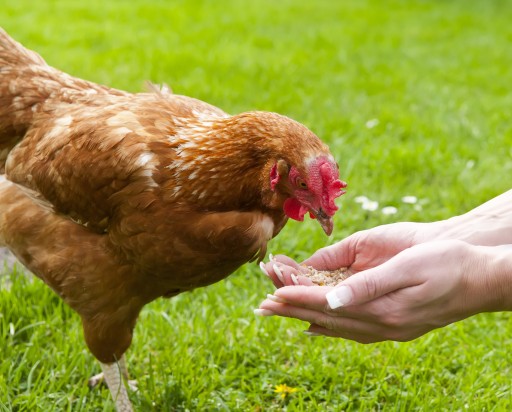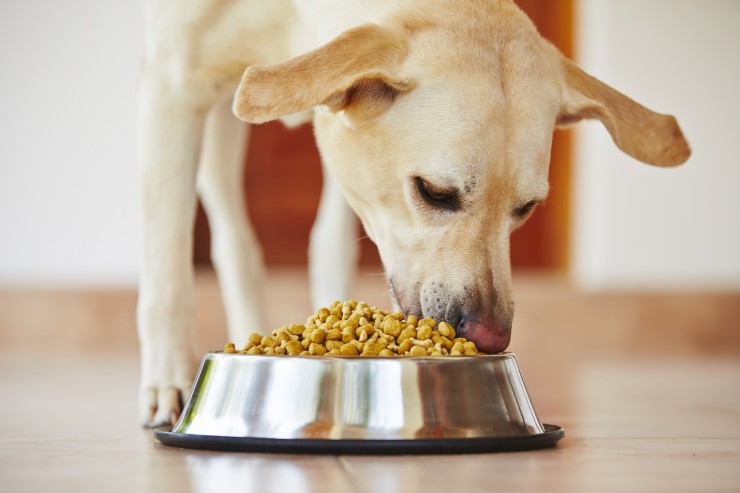

The health of any dog depends on their ability to digest the food that they eat, and utilise all of the essential nutrients within it. When this does not happen, a range of problems can follow, and protein-losing enteropathy is one of the most common of these. The term protein-losing enteropathy refers to an abnormal condition of the intestines, which lead to the intestines failing to properly make use of the proteins present in the food that the dog eats.
When a dog eats, the nutrients in their food are passed via the bloodstream to the digestive system, from the stomach and to the intestines, where it is separated into useful products and waste products. In the healthy dog, the useful products, including protein, are absorbed by the bloodstream and distributed around the rest of the body. As a normal part of this healthy process, a small amount of useful protein will naturally leak back into the intestine, where it is reabsorbed again for use by the body. However, when the intestines are not functioning properly or are damaged, the leakage is increased and the intestines fail to reabsorb it, leading to the condition known as protein-losing enteropathy.
Protein-losing enteropathy can have a wide variety of underlying causes, and is often found as a secondary complication of or an accompaniment to a range of other conditions. Some of the most common causes of the condition in dogs include:
As with many internal conditions that affect the stomach, intestine or other parts of the digestive system, protein-losing enteropathy in dogs presents with a range of symptoms, some of which are common to other conditions too. Some of the main symptoms of protein-losing enteropathy in the dog include:
Your vet will take a thorough history of your dog’s health, and talk to you about the symptoms that you have identified. This will include a complete physical examination of your dog, and if your vet suspects the presence of the condition, they will also require further tests.
Testing such as urinalysis, a blood workup and biochemical profile will be used to check the protein levels and blood calcium levels of your dog as part of diagnosis. It is just as important to rule out the presence of other conditions as it is to reach a formal diagnosis of protein-losing enteropathy, and so quite a wide range of tests may be performed. This may also include taking stool samples to check for the presence of worms and other intestinal parasites in your dog, and any underlying infections.
Another test that your vet might perform is a blood test to see what level of vitamins are present in the blood, as these levels will be low if your dog is unable to properly reabsorb protein from within the intestine. Ultrasound and/or x-ray examination may be needed too, to check for the presence of tumours or ulcers, and the function of the heart.
How your vet decides to proceed with treatment very much depends on what they identify as the cause of the condition in the first place. Treatment of the disease or problem that leads to the dog’s intestines being unable to properly reabsorb protein is the first step in the process.
As such, there is no one common treatment protocol for the condition; for instance, cancerous tumours would require a very different form of treatment than a heavy worm count in the intestine or irritable bowel syndrome.
If your dog’s protein levels are very low as a result of the condition and this is posing an immediate hazard to their health, your dog may require a blood transfusion to support the protein balance of the blood in the interim.
While protein-losing enteropathy can theoretically affect dogs of any breed or type, some breeds seem to be particularly prone to developing the condition. This suggests that there is potentially a genetic element in play and that the condition may be fully or partially hereditary, but this is not definitively known for sure.
The Yorkshire Terrier, Basenji, Soft-coated Wheaten Terrier and the Norwegian Lundehund are the breeds of dog considered to be most at risk of developing the condition.
 Making A Cat Or Dog Food Complaint
Making A Cat Or Dog Food Complaint
 Give Safety to Your Pet with Keeping at Dog Kennels in South Yorkshire
Give Safety to Your Pet with Keeping at Dog Kennels in South Yorkshire
 Understanding The Difference Between Dominant Behaviour And Stubborn Behaviour In The Dog
Understanding The Difference Between Dominant Behaviour And Stubborn Behaviour In The Dog
 4 Vitamin Deficiencies Seen In Chickens
4 Vitamin Deficiencies Seen In Chickens
 Does Feeding Dry Food To My Dog Help Keep Their Teeth In Good Condition?
Does Feeding Dry Food To My Dog Help Keep Their Teeth In Good Condition?
 Worming Chickens - Worms And How They Affect Your Chickens Health
Worming Chickens - Worms And How They Affect Your Chickens Health
 Signs Youre Family Might Be Ready To Adopt Or Buy A Dog
Signs Youre Famil
Signs Youre Family Might Be Ready To Adopt Or Buy A Dog
Signs Youre Famil
 Toxoplasma In Cats, Why It Is Important
Toxoplasma in Cats is pretty common and here I will exp
Toxoplasma In Cats, Why It Is Important
Toxoplasma in Cats is pretty common and here I will exp
 Preventing And Removing Pet Odour From The Home
Preventing And Re
Preventing And Removing Pet Odour From The Home
Preventing And Re
 Training The Alaskan Malamute Successfully
Training The Alas
Training The Alaskan Malamute Successfully
Training The Alas
 10 Faqs About The Mismate Injection
10 Faqs About The
10 Faqs About The Mismate Injection
10 Faqs About The
Copyright © 2005-2016 Pet Information All Rights Reserved
Contact us: www162date@outlook.com